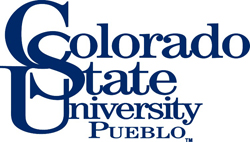Policies of CSU Pueblo
University Policy

| Policy Title: Student verification and identification | Category: Academic Affairs/Faculty |
| Owner: Provost/Executive Vice President | Policy ID#: 1.03.00 |
|
Contact:
Division of Extended Studies
Web: http://extendedstudies.csupueblo.edu/Pages/default.aspx Email: extendedstudies@csupueblo.edu Phone: 800-388-6154 |
Effective Date: 10/29/2016 |
POLICY PURPOSE:
Compliance with the Higher Education Opportunity Act (HEOA) of 2008, Public Law 110-135 requires that an institution of higher education have a policy to verify the identification of a student that is taking a course via distance learning.
POLICY APPLIES TO (Persons affected by): Students in distance learning courses offered through Campus or Extended Studies.
DEFINITIONS:
Distance Learning: Courses that are taken on line and/or off campus via correspondence.
POLICY STATEMENT:
CSU-Pueblo is committed to academic honesty and integrity in its entire community, which includes distance learning. CSU-Pueblo has implemented procedures to ensure compliance with the HEOA to confirm that the person who has enrolled in a class is the person completing the enrollment form, that a student taking an exam is the student registered to take the exam and that the student who is registered for the distance learning class is the same student who participates in, completes, and receives credit for the course. The University will use methods that have reasonable and appropriate safeguards to protect student privacy. Students will be notified at the time of registration or enrollment of any projected additional student charges associated with the verification of student identity such as separate fees charged by proctoring services.
PROCEDURES:
- The University uses a secure login and passcode in conjunction with learning management and email systems. Students use these systems to gain access to their course material, submit work, and communicate with instructors through this secure login.
- The University currently uses the secure login and password function of Blackboard Learning Management System (LMS) to meet the federal student identification standards and aid in the verification of student identification. A professor or instructor who chooses to use an alternative LMS or course delivery system must have approval to use the alternative system. The system must be able to verify student identification and be reviewed by Information Technology Services for effectiveness and approved by their Department Chair, Dean and the Provost prior to the beginning of the course.
- Students who complete print courses through Extended Studies receive course materials and feedback through US Mail in envelopes addressed to the student at the residence listed on their application. Accessing and opening mail addressed to another individual is a violation of federal law. Currently only students residing in a restricted internet access facility are permitted to take courses through print based correspondence.
- If a student taking a course through Extended Studies is required to take an exam with the aid of a proctor the student must use either university proctoring facilities or an approved proctor who meets the proctoring standards listed in the proctoring document. Proctors are directed to require photo identification for students taking an exam. Additionally, most exams are offered through a secure login and passcode learning management system which requires the student to log into the students account and the proctor to enter a password sent to the proctor by Extended Studies. Virtual proctoring services are available through a third party vendor who also requires students to provide photo identification and answer identity confirmation questions to access their exam. Paper based exams are only administered to individuals with either a disability accommodation or who reside in an internet restricted facility.
- As required, potential fees for proctoring which is used as a part of an identity confirmation plan by Extended Studies are disclosed to students. Courses which require a proctored exam are noted in the Extended Studies catalog published each year and are noted in the Extended Studies website. When students initially access their Extended Studies courses, the proctoring rules are listed in both the exams section and the syllabus if proctored exams are required for the course.
RESPONSIBILITIES: The Extended Studies program is responsible for ensuring these procedures are followed for courses offered through Extended Studies. Department Chairs are responsible for ensuring these procedures are followed by faculty for Campus based online courses.
RELATED LAWS, POLICIES & PROCEDURES:
Proctoring Rules of CSU-Pueblo
AUTHORITY:
Higher Education Opportunity Act of 2008
FORMS:
Proctoring Form
Approved by:
Lesley DiMare, President
10/29/2016